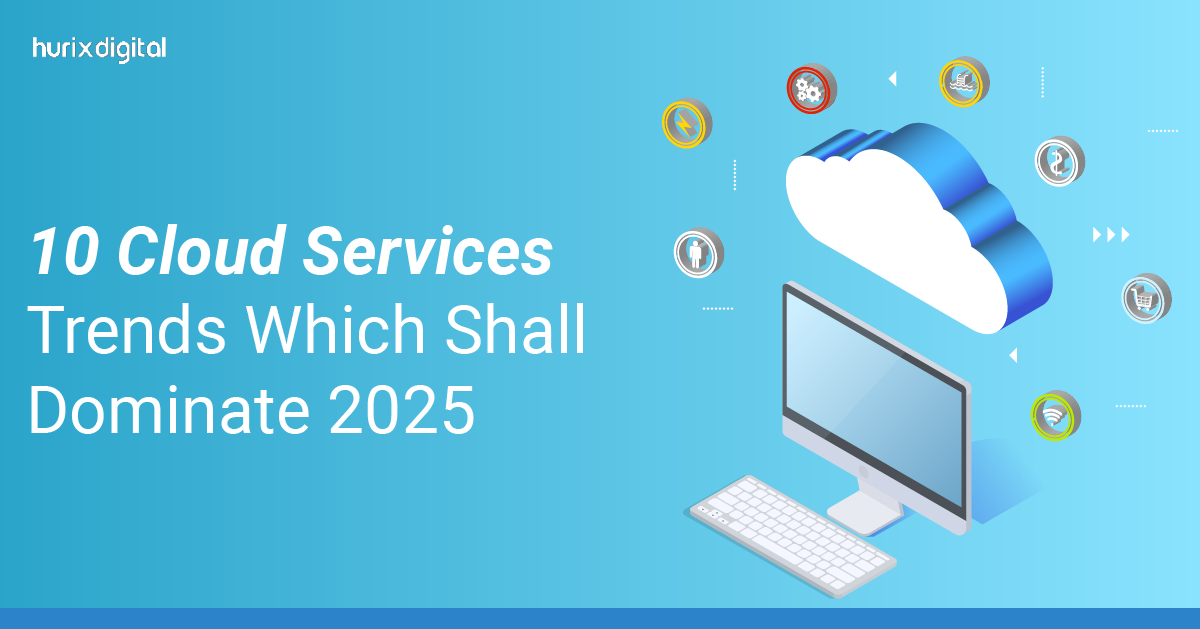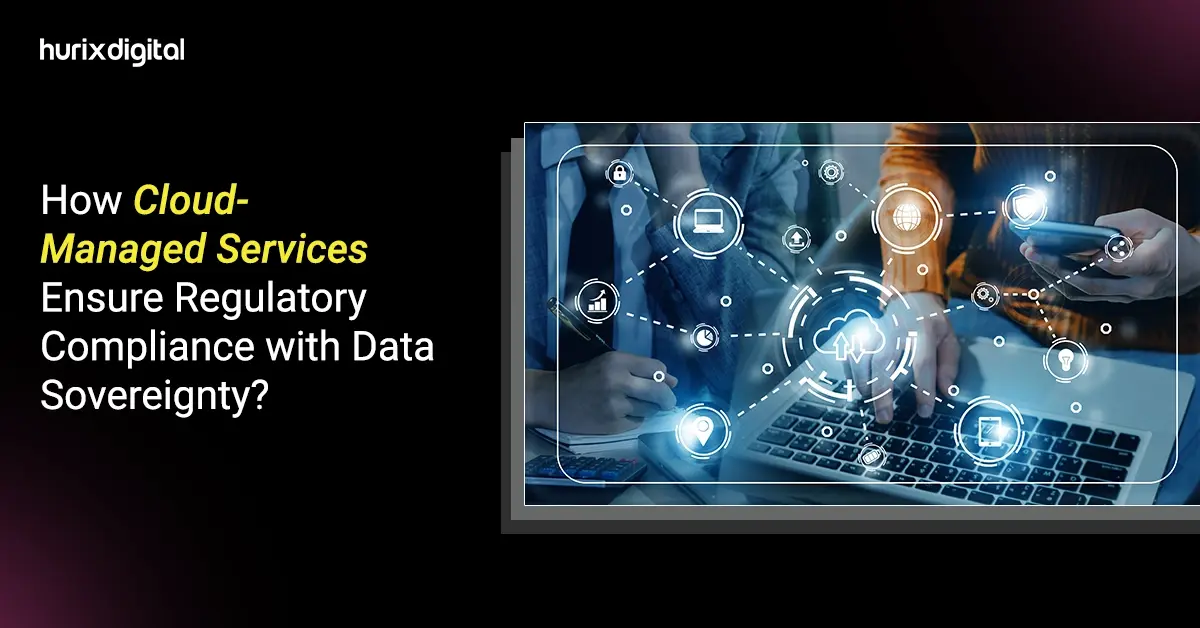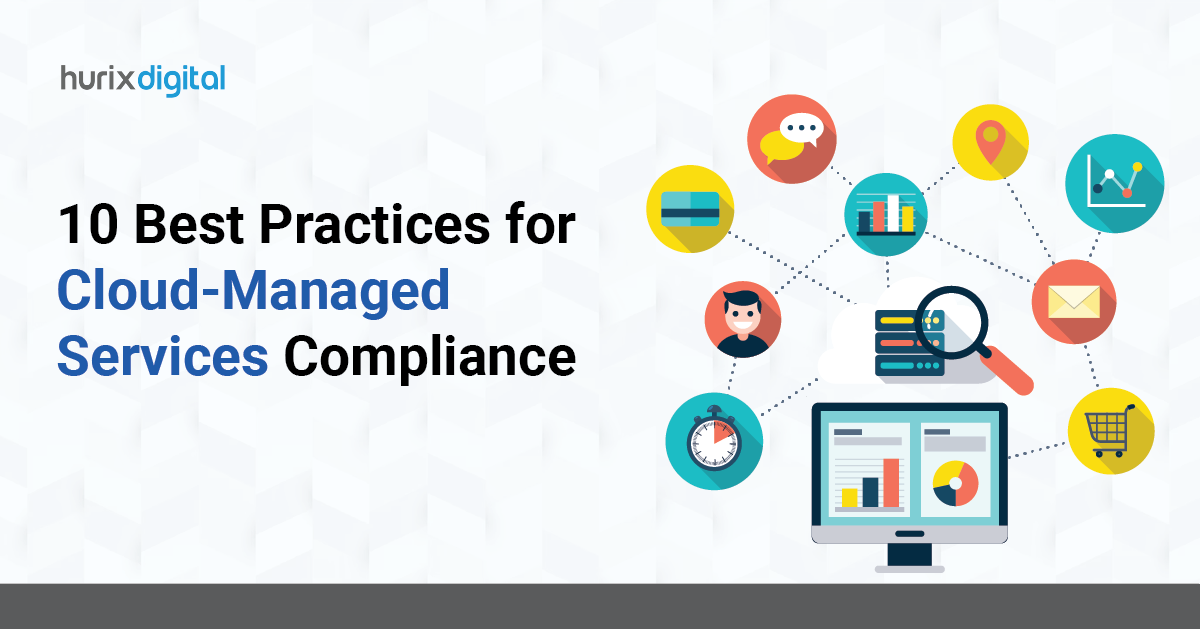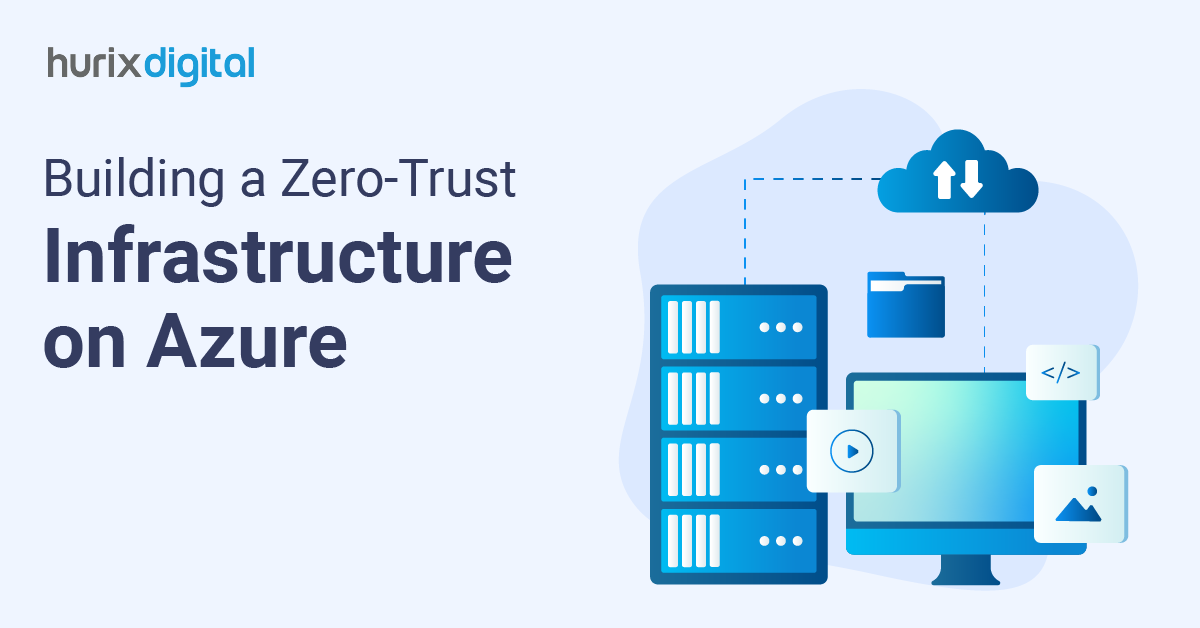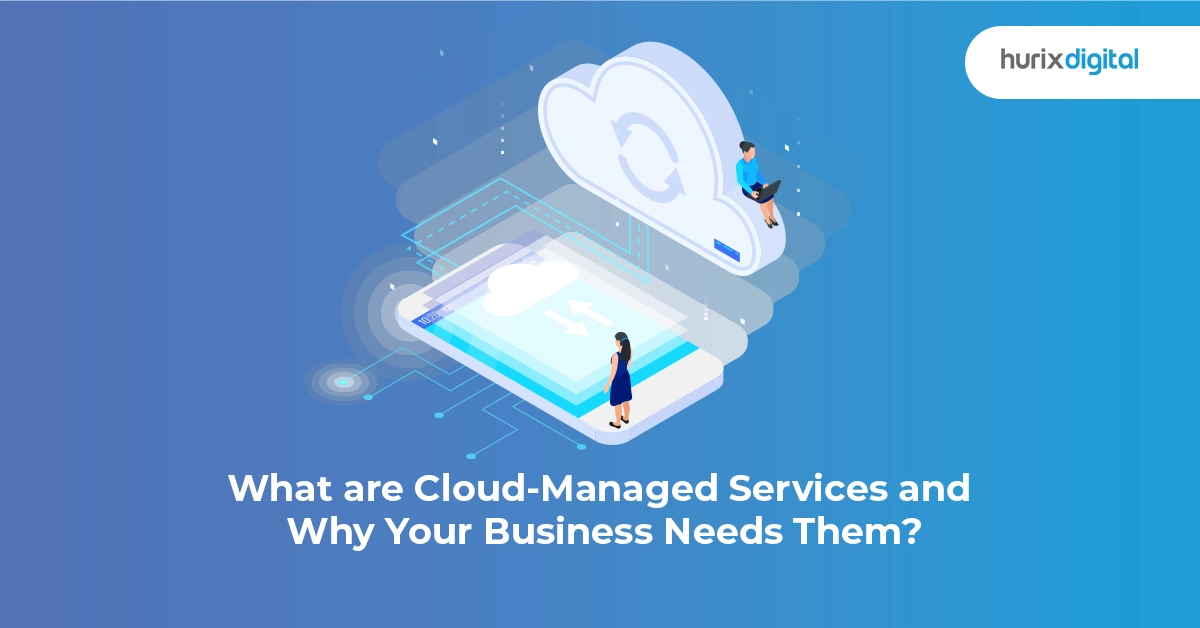
What are Cloud-Managed Services and Why Your Business Needs Them?
Summary
Discover how cloud-managed services empower businesses to cut costs, boost security, ensure compliance, and innovate by simplifying cloud migration and resource allocation.
All kinds of companies are now using cloud computing to increase their operational effectiveness. According to a report from MarketsandMarkets, the global cloud-managed services market is expected to cross $164 billion by the end of 2027. Businesses can profit greatly from cloud operations, including lower expenses, improved collaboration, and greater flexibility. Gartner reported that 85% of companies will adopt a cloud-first approach by 2025.
Cloud-managed services come in because, despite this, cloud environment maintenance can be complicated and resource-intensive.
In this blog, we will explore the concept of cloud-managed services, their advantages, and the reasons your company needs them to remain competitive in the digital era.
Table of Contents:
- Understanding Cloud-Managed Services
- The Benefits of Cloud Management Platforms
- Managed Cloud Services vs. Traditional IT Management
- Why Your Business Needs Cloud-Managed Services
- Conclusion
Understanding Cloud-Managed Services
Cloud-managed services are offered by outside specialists to oversee the cloud infrastructure of an organization. Among the many tasks covered by these services are security, monitoring, maintenance, optimization, and support.
Ensuring a strong, safe, and optimally operating cloud infrastructure will free up companies to concentrate on their main areas of expertise.
Key Components of Cloud-Managed Services
The essential components of cloud-managed services include:
- Cloud Monitoring and Management: Cloud management and monitoring is the ongoing observation of cloud resources to ensure availability and the best possible performance. Aspects of monitoring include CPU, memory, and network performance.
- Security Management: Security management is putting into practice and upholding security protocols to protect against dangers and weaknesses. This includes firewalls, detection of intrusions, and regular security assessments.
- Cost Management and Optimization: Recognizing areas to cut costs and make the most of cloud spending. This includes using pricing and discount schemes and examining consumption trends.
- Disaster Recovery and Backup: This makes sure that data is routinely backed up and can be swiftly restored in the case of a catastrophe. Part of this is developing and implementing recovery strategies.
- Compliance Management: This makes sure that the cloud environment follows industry practices and the relevant legal requirements through audits and proper documentation.
- Performance Optimization: The optimal performance of the cloud environment is achieved through ongoing adjustment. This can include allocating more resources and putting performance improvements in place.
Also Read: How to Enhance Performance & Foster Innovation with Cloud-Managed Services?
The Benefits of Cloud Management Platforms
A cloud management platform provides a complete interface for cloud resource management and optimization. The advantages of using cloud-managed services are:
1. Centralized Control
By giving all cloud resources a source of control, Clocloudnagement enables environmental monitoring and control.
2. Greater Visibility
Costs, performance, and resource utilization are all revealed via detailed analytics and reporting tools.
3. Enhanced Security
Threat detection and automated compliance checks are only two of the strong security functions that CMPs provide.
4. Savings
Cloud services help companies cut their cloud costs by identifying inefficiencies and suggesting improvements.
5. Streamlined Operations
Automation features simplify operations and free up IT staff to concentrate on more important projects.
Managed Cloud Services vs. Traditional IT Management
Managed cloud services shift the focus from on-premises infrastructure to cloud-based settings. Numerous benefits come with this change, so let’s compare:
| Parameters | Managed Cloud Services | Traditional IT Management |
| Scalability | Managed Cloud Services are easily scalable up or down according to the demand, providing flexibility. | Traditional IT management requires significant investment for upgrades. |
| Cost-Effectiveness | Pay-as-you-go pricing schemes and the absence of initial capital outlays reduce the cost of cloud solutions. | They demand hefty initial investments with large ongoing costs. |
| Accessibility | Remote work and teamwork are made possible by the ability to use cloud services from any location with an internet connection. | Accessibility is limited to physical locations and might require the use of VPNs for remote access. |
| Innovation | Organizations have access to the newest developments with the addition of features and technology. | Longer upgrade times and higher costs can stifle innovation. |
Why Your Business Needs Cloud-Managed Services
Management of these settings becomes more difficult and demanding as companies use cloud technology more and more. Working with a managed service provider has many benefits that can greatly improve your operations. You should use cloud-managed services for the following main reasons:
1. Management and Support
The availability of a group of specialists in cloud technology is one of the main advantages of cloud-managed services. These experts can handle complicated cloud environments because they are knowledgeable and experienced, so your infrastructure is always at its best regarding performance, security, and economy.
Business cloud solutions let your business take advantage of the newest technology and industry best practices without having to make large investments in staffing or training.
2. Enhanced Compliance and Security
Businesses using the cloud have to be extremely concerned about security. A key element of cloud-managed services, cloud security management, offers an all-encompassing defense against vulnerabilities and cyber threats.
Strong security measures are put in place by managed service providers and include firewalls, encryption, intrusion detection, and routine security audits.
They also maintain up-to-date knowledge of the most recent compliance standards, guaranteeing that your cloud environment complies with rules and laws.
3. Cost Optimization
Especially as your consumption increases, controlling cloud expenses might be difficult. Cost optimization in cloud management helps companies optimize their spending by identifying unused resources, putting cost-saving measures into place, and offering thorough cost analysis.
This strategy guarantees that you maintain cost management while maximizing the return on your cloud expenditures.
4. Easy Cloud Migration
Making the complicated decision to go to the cloud calls for meticulous preparation and carrying out. Managed service providers that provide cloud migration services expedite this procedure and guarantee a seamless and effective transfer.
Among these services are evaluation of your present infrastructure, creation of a migration plan, carrying out the migration, and assistance after the migration. Businesses can reduce downtime and interruptions to their operations with professional direction.
5. Hybrid Cloud Management
To suit their particular requirements, many companies adopt a hybrid cloud strategy that combines public and private cloud systems. Providing smooth integration and administration of several cloud environments, hybrid cloud management is an essential component of cloud-managed services. The best of all worlds, managed service providers guarantee that your hybrid cloud architecture is scalable, secure, and optimized.
This strategy lets companies keep control over private cloud applications and sensitive data while nevertheless benefiting from the flexibility and cost advantages of the public cloud.
6. Increased Focus on Core Business Operations
Using professionals to handle cloud administration frees up internal resources so your staff may focus on strategic objectives and main company operations.
With cloud-managed solutions, your IT personnel can spend more time on growth, innovation, and customer service than they would on normal maintenance and troubleshooting. This change of emphasis increases productivity overall and propels company success.
Read this Success Story: Hurix Digital Modernizes IT Systems for a Food Manufacturing Giant
Conclusion
Businesses can maintain their competitiveness and concentrate on their fundamental operations by working with cloud service providers. Using cloud-managed services is a calculated step that can improve efficiency, change the way your company runs, and ensure long-term success.
Ensuring inclusive digital experiences is a collective responsibility, and at Hurix Digital, we prioritize creating accessible online platforms. Our experts specialize in integrating cloud-managed services to enhance web accessibility, ensuring an exceptional user experience.
Contact us today to see how the cloud can benefit your business operations.

Vice President and Strategic Business Unit Head – Cloud Services
A top technology management voice on LinkedIn with 20 Years of experience in Information Technology, Cloud Services, Digital Transformation, Application Modernisation, Managed Services, IT Security Engineering and Operations Management. An avid technology Leader, Leadership Speaker, Author & Coach.
